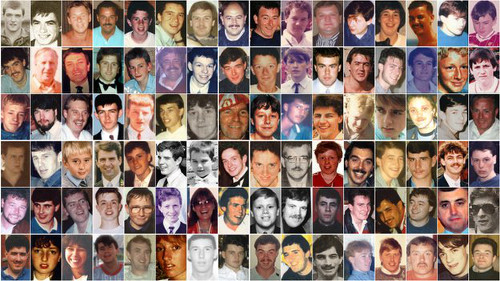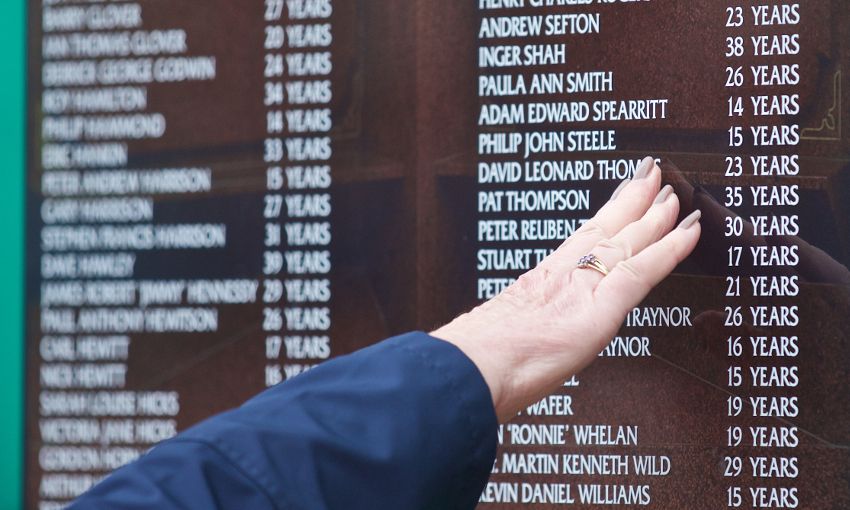Hillsborough inquests - February 24
The Hillsborough inquests commenced on March 31, 2014 and are the subject of reporting restrictions that have been imposed by the Attorney General's office. Liverpool Football Club is respectful of these restrictions and will therefore only be making available updates from other media channels for the duration of the inquest.

The report below - and the witness testimony contained within it - does not necessarily reflect the views of Liverpool FC. Please be aware that the reports on these pages will contain evidence about the day of the disaster which may be distressing.
To view archive reports from each day of the inquest hearings, click here.
Courtesy of the Liverpool Echo - February 24
The jury heard harrowing evidence from fans and spectators caught up in the crush at Hillsborough, as the coroner continued to sum up the two-year-long inquests.
Sir John Goldring told the jury the accounts of the crush in the pens on April 15, 1989, would help them to make determinations about the emergency response on the day.
The testimony read out by the coroner to the jury on the 13th day of his summing-up ranged from Liverpool FC fans caught up in the crush, to high-profile witnesses like Trevor Hicks - founding chairman of the Hillsborough Family Support Group - whose daughters Sarah, 19, and Vicki, 15, died in the disaster.
He reminded the jury that Mr Hicks said he thought it was about 2.50pm that he first noticed something was wrong in the centre of the terrace, and that fans were in distress.
Mr Hicks said the police “totally misread” what was happening as they thought it was a pitch invasion. He said it was clear to him and everyone around him it was not. He said it was obvious people in pen three were in distress.
Mr Hicks said the position in the pens was getting worse. “You could sense that things were really, really bad,” he said in his evidence.
The coroner said Mr Hicks’ focus of attention was on pen three. He guessed Sarah and Vicki were there. As he moved across, he saw Vicki passed over. Mr Hicks said he and someone else started to give life support to Vicki.
He accompanied Vicki in an ambulance to the Northern General Hospital, believing that Sarah would follow shortly after. Both subsequently died.
The coroner said: “It must have been a nightmare for Mr and Mrs Hicks.”
One of the things Mr Hicks said he found infuriating was that they were asked by police, probably a dozen times, “what they had had to drink.”
In his evidence, Kenny Dalglish, who was then manager of Liverpool FC, described the situation in his 1989 statement as “just mayhem”.
He said he and Nottingham Forest manager Brian Clough agreed to a police request to make an announcement to the crowd. They went to the police control box but the microphone wasn’t working.
Instead, he made a brief statement from the DJ booth at the ground, appealing for calm and to co-operate with the police. He said this was well-received with applause.
The coroner refers to a later newspaper interview Mr Dalglish gave in which he said he thought there had been a “breakdown in communication” at the ground, as shown by the microphone not working.
The coroner also summed up the evidence given by then FA chief executive Graham Kelly. In his 1989 statements, he said that soon after kick-off his attention was drawn to fans scaling the perimeter fence at the Leppings Lane end. He said “hooliganism did not spring to mind”.
After going into the police control box, he said that police commander, Chief Supt David Duckenfield, told them that there had been an inrush of Liverpool supporters after a gate had been forced open.
Mr Kelly said that in his opinion, more information should have been given to everyone in the ground.
In a radio interview, Mr Kelly said that he had been told by police that a gate, or gates, had been forced, and there had been an “inrush” of Liverpool supporters.
In the evidence given by then Merseyside police deputy chief constable James Sharples, he said: “The assumption I made, and I know that other people did as well… was that this was simply crowd disorder. You’ve got to take yourself back to 1989, where crowd disorder was not uncommon and not unusual.”
Mr Sharples said that “no amount of experience or rank or training could prepare any police officer for the horror which unfolded at Hillsborough”.
He said he thought it would be unfair to suggest that there was no-one in charge.
He went, at about 3.40pm, to the police control box. Mr Sharples said the mood was of “relative calm and control.” He added: “They were sorting out how best to deal with the situation. They were trying to find out the details and what they should do.”
The coroner summarised the testimony of ordinary Liverpool fans, as well as police officers, on the day of the disaster.
Liverpool fan David Cruice said the mood of the crowd was initially “very good,” until the crush began to develop in pen three.
He said: “People were doing everything they could to help others. I became separated from my friend and there was a lot of panic and distress in the crowd in front of me. I found it very, very difficult to breathe.
“The crowd was screaming for the police to open the gates. I don’t think the police realised the pressure was coming from down the tunnel and towards the terrace.
“During the worst periods, there was not much organisation. My impression was that there was no-one, in terms of police, who was taking control of the situation.”
Another fan, Richard Greaves, said pen three was not far off capacity, and later it became tighter. He said fans were hanging over the fences, trying to drag people out of the pens.
He said police kept forcing the gate at the front of pen three shut. He said fans shouted: “Open the gates”.
Mr Greaves finally managed to get onto the pitch. He said he saw nobody making efforts to organise attempts to assist people. He said the fans were “brilliant.”
Sir John Goldring also summed up the testimony of a number of police officers who were on duty for the FA Cup semi-final.
A former inspector said he had assumed officers in the control box would know there was a major incident at Hillsborough.
Peter Darling said it was not specifically part of the job to monitor the density of the crowd in the Leppings Lane terrace, but “if density became an issue, that was something they should take action on”.
He said that the police in the control box had a duty to observe the density of the crowd in the pens. He said: “They had a good view. They had CCTV. They were in a better position in many respects to observe that.”
The inquests also heard read evidence from David Illingworth, who has since died.
PC Illingworth said he did not consider it was his duty to do anything about the uneven distribution of the fans at the Leppings Lane end.
He said he thought it was the responsibility of the police control box to put the crowd in the right place.
Once he realised there was a problem, he opened the gates to help people. He was not afraid, he said, of shouldering the responsibility. He said he acted “immediately” - if he had not acted when he did, then more people would have died.
Click here for a full transcript from February 24.



